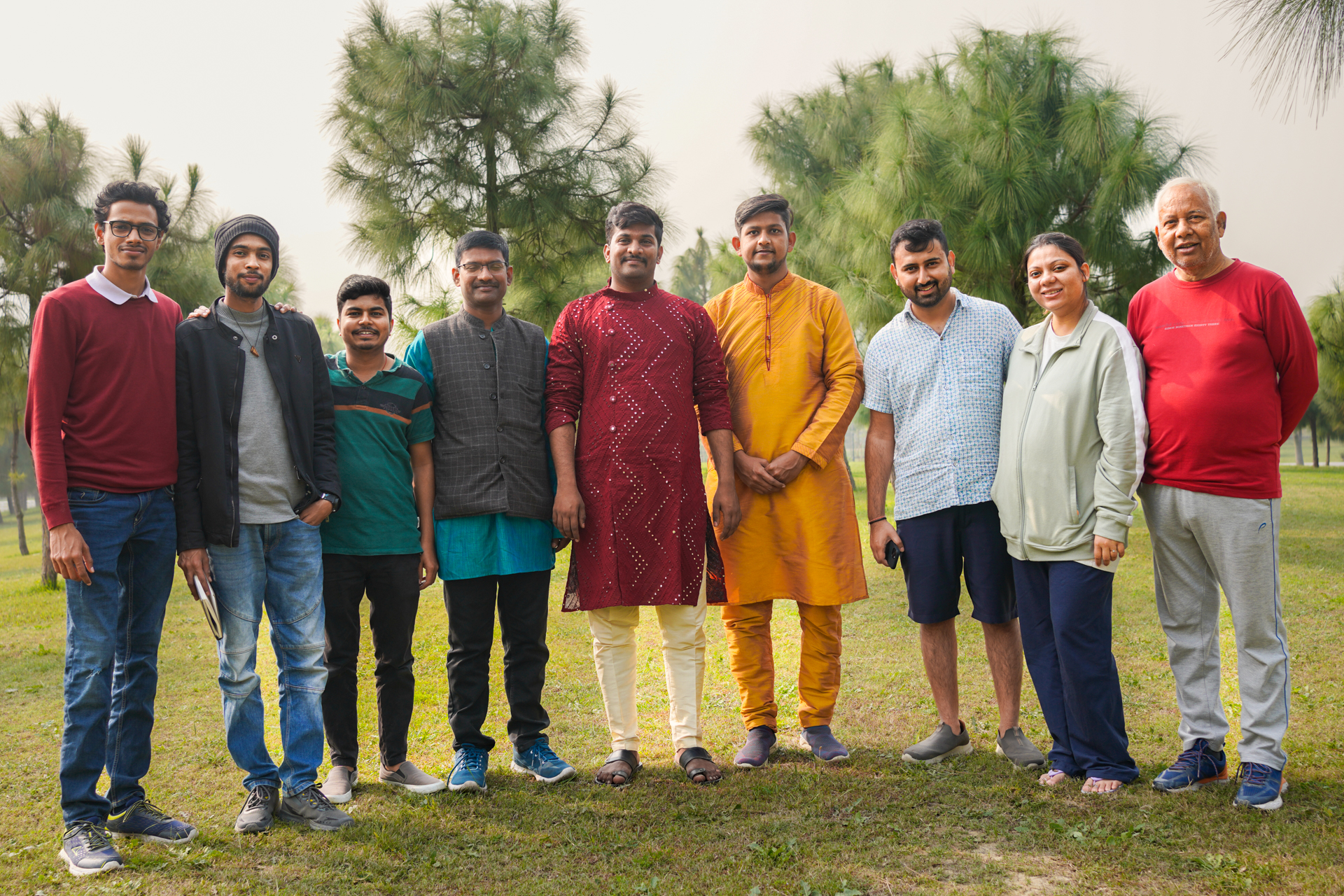
The dying glory of Awadh
Deepak Singh is a young Classical musician from Lucknow striving to preserve lesser-known Awadhi folk songs.
Folk music and literature have always been the backbone of any civilization. Myths and shared histories were transmitted from one generation to the next through them, which created a sense of belonging and brought people together. Society was organised into specific classes, each of which performed a specific function, and this was how harmony was established through structure and belonging. As we have now moved toward an individualistic lifestyle that focuses more on the person than the collective, folk music and folk culture are soon vanishing and are on the verge of being a thing of the past.
One such unique custom and its associated music are that of the Mirasens, a community of women in the Awadh region whose work was to attend manglik events and give their blessings to the recipients. Manglik events are occasions like birth, wedding, mundan, naming ceremony, etc.; events that are related to a person’s life and are common to everyone. Mirasens were a highly respected group of women whose singing was considered very auspicious. They composed these unique songs for each of these occasions, and their singing was very melodious.
Very few Mirasens remain today, and the custom of inviting them has long died out. Their songs remain a rare and insightful glimpse into the history of Awadh and are a good source for understanding the society and the life of the people then. Deepak Singh is one of the few musicians in Uttar Pradesh who can perform these songs.
Deepak Singh was born in Muhammadi Kheri, a village in the Lakhimpur Kheri district of Uttar Pradesh. Though he doesn’t come from a family of musicians, they had a keen interest in music and were good singers. His mother, Shanti Devi, was a huge influence on him as a child, and he learnt to sing many bhajans and kirtans from her. It was from her that he learnt the songs of the Mirasens as well and learnt about their lesser-known history.
He knew early on in his life that he wanted to be a folk musician and continue these dying traditions, but to achieve his goals truly, he realised early on that learning Classical Music and building a strong foundation in it is crucial. Knowledge of Classical Music and the theory of music helps singers improvise and innovate folk music to present it to the current generation. It helps them bridge the gap between modern and folk music. Deepak Singh started learning Classical Music at the age of 12 and has learnt it over the years from many different teachers. He is currently pursuing a Master’s Degree in Music and aims to get a PhD in Folk Music in the future.
Deepak Singh and his two group mates are all budding musicians in Lucknow’s thriving Classical Music scene. Despite this promising future, they keep folk music as their primary focus and have performed them on many different platforms, including All India Radio and TV. Deepak Singh has also received appreciation and felicitations at many government-sponsored events. Folk music derives from life experiences, and understanding these experiences and the associated emotions is really important to succeed as a folk musician. For instance, he explains that one cannot sing a bidaai song unless one understands a father’s grief upon his daughter’s wedding. He is grateful to have seen life in the villages first-hand and having grown up in a huge, joint family, for this has helped him understand the underlying emotions of the folk songs.
Deepak Singh’s fellow musicians, Vijay Kumar and Ambuj Gupta, have also studied music formally and teach and perform in Lucknow. Vijay Kumar has also studied political science and psychology and teaches music at schools. Ambuj Gupta has two brothers, and they are all musicians. He learnt Tabla from Arun Bhatt and wants to be a renowned Tabla player. He and his brothers also perform Sufi songs and are quite active on social media, trying to gain popularity as musicians. Deepak Singh has known them for a long time, and the three perform at many events as a side hustle.
The songs of the Mirasens shower praise and blessings upon the people and use characters from religion and mythology to illustrate that. At a wedding, for example, they might sing a song comparing the bride and the groom with Ram and Sita and pray that the couple continues to live according to their ideals. Jab lag bahe Ganga Jamuna dhara, achal rahe siya ahivaat tumhara.
According to Deepak Singh, the most important reason for the decline of such songs and customs is our present obsession with Western culture and hyper-modernization. Although he is not against technological and scientific innovation, as even he aims to use them to enrich and enhance folk music, he believes we have lost our balance and have started to discard our own culture and customs in favour of the Western way of life. From our dressing to our choice of food and the language we speak, we have collectively, as a society, held the Western ways in higher regard and more tremendous respect than the indigenous way. Even in music, he feels that folk and classical musicians are not as beloved and respected as pop musicians who sing Western tunes in anglicised languages.
The way forward is to change our subconscious perspective on our culture and history, understand our journey so far, and integrate lessons from the past into our lives. Although it is unrealistic to expect the custom of the Mirasens to miraculously come alive today, even recounting their lives and their music is a way to pay tribute to our previous generations, their lives and the rich cultural heritage they have left behind for us.
